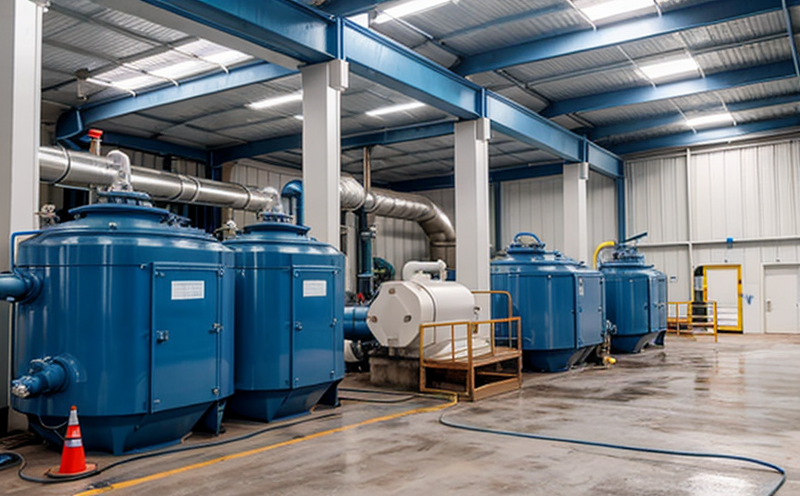ISO 9308 Coliform Bacteria Testing in Marine Wastewater
The ISO 9308 standard is a pivotal requirement for compliance with global regulations aimed at preventing the introduction of harmful aquatic organisms and pathogens through ballast water discharge. This test ensures that marine wastewater treatment systems effectively remove coliform bacteria, which are used as indicators of potential contamination by human pathogenic microorganisms.
The testing process involves several critical steps. Specimens of treated marine wastewater are collected and prepared according to ISO 9308 guidelines. These specimens undergo multiple rounds of incubation in selective media that specifically promote the growth of coliform bacteria. The presence and concentration levels of these bacteria are then quantified using standard microbiological methods.
Compliance with this test is essential for marine operators, ensuring adherence to international standards such as the International Maritime Organization's Ballast Water Management Convention (BWM). This convention mandates that ballast water discharged into receiving waters must not contain excessive numbers of harmful organisms or pathogens. By adhering to ISO 9308, facilities can demonstrate their commitment to environmental protection and public health.
The significance of this test extends beyond regulatory compliance. It also plays a crucial role in safeguarding the marine ecosystem by preventing the spread of invasive species that could disrupt local biodiversity. The use of advanced microbiological techniques ensures accurate detection and quantification of coliform bacteria, providing reliable data for decision-making processes.
Understanding the broader implications of this test is vital for stakeholders involved in maritime operations. Compliance officers must ensure that their facilities meet all necessary standards, while quality managers need to maintain rigorous testing protocols. R&D engineers should stay abreast of new technologies and methodologies that can enhance the efficiency and effectiveness of wastewater treatment systems.
The implementation of ISO 9308 is particularly important for industries such as shipping, oil and gas, and port management. These sectors are responsible for managing large volumes of ballast water and must ensure that any discharged water is free from harmful pathogens. By adhering to this standard, they contribute to the overall health of aquatic environments.
In summary, ISO 9308 Coliform Bacteria Testing in Marine Wastewater is a cornerstone of environmental protection for marine facilities. It not only ensures regulatory compliance but also promotes sustainable practices that benefit both the environment and public health.
Why Choose This Test
- Ensures compliance with international standards such as the International Maritime Organization's Ballast Water Management Convention (BWM).
- Provides accurate detection and quantification of coliform bacteria, ensuring reliable data for decision-making processes.
- Aids in preventing the spread of invasive species that could disrupt local biodiversity.
- Contributes to safeguarding public health by eliminating potential sources of harmful pathogens.
The ISO 9308 Coliform Bacteria Testing is indispensable for facilities managing large volumes of ballast water. By adhering to this standard, marine operators can demonstrate their commitment to environmental protection and sustainability.
Quality and Reliability Assurance
- Our laboratory adheres strictly to ISO 9308 guidelines for specimen preparation and incubation.
- We use state-of-the-art equipment, including selective media and microbiological culture techniques, to ensure accurate results.
- A trained team of microbiologists performs the testing, ensuring precision and reliability.
At our laboratory, we pride ourselves on delivering high-quality, reliable test results. Our commitment to quality is reflected in every aspect of the ISO 9308 Coliform Bacteria Testing process.
Competitive Advantage and Market Impact
Adhering to ISO 9308 Coliform Bacteria Testing provides significant competitive advantages for marine facilities. Compliance with this standard not only ensures regulatory adherence but also enhances a facility's reputation for environmental responsibility.
By demonstrating their commitment to sustainability, facilities can attract environmentally conscious clients and investors. This testing process underscores the importance of protecting marine ecosystems and public health, setting a benchmark for responsible maritime practices.





